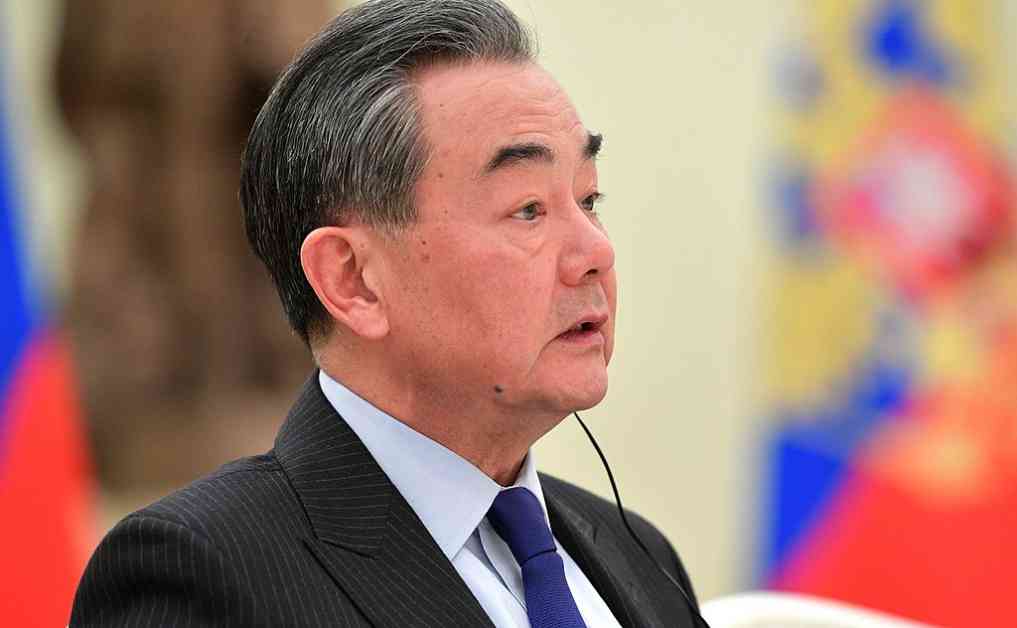China’s Support for US-Russia Deal on Ukraine Conflict
In a recent statement released by China’s foreign ministry on 21 February, Chinese Foreign Minister Wang Yi expressed support for the “recent consensus” between the United States and Russia regarding the ongoing conflict in Ukraine. This announcement comes amidst talks between American and Russian officials in Saudi Arabia, raising concerns about potential negotiations that could favor Russia without the involvement of Ukraine or the EU.
At the Group of 20 summit in Johannesburg, Wang emphasized the importance of finding a sustainable and lasting solution that addresses the concerns of all parties involved. He highlighted the increasing calls for peace talks and expressed optimism about the potential for a peaceful resolution to the crisis.
China’s Stance on Peace Efforts
Wang Yi reiterated China’s commitment to supporting peace efforts and endorsed the consensus reached by the United States and Russia. He also offered China’s willingness to play a constructive role in the political settlement of the conflict. The Chinese diplomat further engaged in discussions with Russian Foreign Minister Sergey Lavrov during the G20 meeting in South Africa, showcasing China’s diplomatic efforts to contribute to peace talks.
Global Reactions and Allegations
The alignment between China and Russia amid the conflict in Ukraine has drawn scrutiny from Western officials, who have accused Beijing of providing military support to Russia. Despite these allegations, China has consistently denied any involvement in strengthening the Russian military and has maintained a stance of impartiality in the conflict. The geopolitical dynamics surrounding China’s alliance with Russia have raised questions about the country’s role in the peace process and its strategic interests in the region.
As tensions escalate in Ukraine and diplomatic negotiations unfold, the role of key global players like China becomes increasingly significant. The statements from Chinese Foreign Minister Wang Yi underscore the complexities of international relations and the delicate balance of power in addressing conflicts of this scale. In a rapidly evolving geopolitical landscape, the nuances of diplomatic engagements and strategic alliances shape the trajectory of peace efforts and influence the outcomes of negotiations.
As the world watches closely for developments in the US-Russia talks and the broader implications for the conflict in Ukraine, the statement from China signals a potential shift in the dynamics of the crisis. With multiple stakeholders involved and divergent interests at play, the path to a peaceful resolution remains complex and uncertain. The interplay of diplomatic maneuvers and geopolitical considerations will continue to shape the trajectory of the conflict and determine the prospects for lasting peace in the region.
The evolving dynamics of the crisis in Ukraine highlight the intricate web of alliances and interests that define global politics. As China navigates its role in the peace process, the statements from Chinese officials offer insights into the country’s diplomatic strategy and its positioning in the broader context of international relations. The delicate balance of power and the complexities of regional dynamics underscore the challenges of resolving conflicts through diplomatic means, underscoring the importance of sustained dialogue and cooperation among all stakeholders involved in the pursuit of peace.
As China reaffirms its commitment to supporting peace efforts and engaging in diplomatic initiatives, the global community awaits further developments in the US-Russia talks and the implications for the conflict in Ukraine. The interplay of geopolitical forces and the shifting alliances in the region underscore the complexities of international relations and the challenges of navigating conflicts of this scale. Amidst the uncertainties and complexities of the crisis, the role of key global players like China emerges as a critical factor in shaping the path to a peaceful resolution and fostering stability in the region.

















